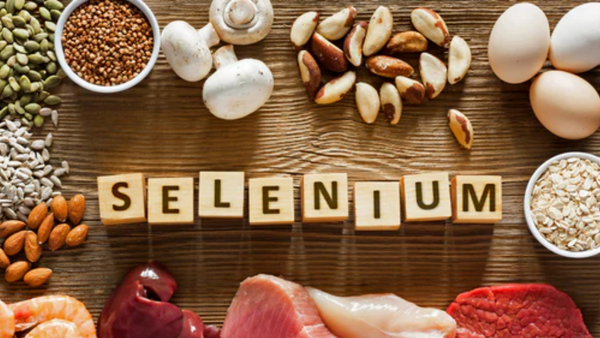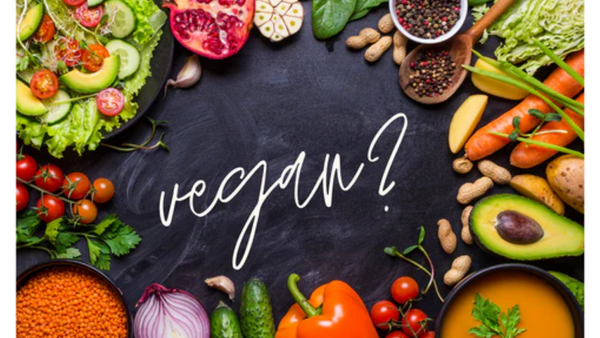Magnesium is an essential mineral that we must consume through our diet. Magnesium is also known as the master mineral because it is involved in over 300 enzyme reactions.
The mineral is important for muscle function, is involved in the transmission of stimuli in nerve cells and is also needed for bone maintenance. Magnesium also plays an important role in energy metabolism.
In our detailed article about magnesium you will learn more about why magnesium is so important.
Here you can find out which foods are best for meeting your magnesium needs.
IT'S WORTH READING!
AT THE END OF THE ARTICLE WE WOULD LIKE TO GIVE YOU A LITTLE JOY WITH A VOUCHER!
Magnesium requirement
The daily requirement of magnesium is approximately 300 - 400 mg, depending on age and gender. Adult women need 300 mg of magnesium daily, men 350 mg. During pregnancy and breastfeeding, the requirement is slightly higher: pregnant women need 310 mg of magnesium daily, breastfeeding women 390 mg. 1
Unfortunately, most people in Germany do not consume enough magnesium. Women consume an average of 200 mg per day, men 250. 2 For this reason, magnesium deficiency is widespread.
Here is a list of the 10 foods that contain the most magnesium: 3

-
Pumpkin seeds
Pumpkin seeds are the leader when it comes to magnesium. 100 g of pumpkin seeds provide a whopping 535 mg of magnesium, which is significantly more than the daily requirement. Pumpkin seeds are also rich in many other minerals such as zinc , copper and manganese. 4
You can simply snack on pumpkin seeds, add them to muesli or sprinkle them over a salad. This way you will consume a good amount of magnesium.
-
cocoa
Cocoa is also a great source of magnesium. 100 g of cocoa provides a whopping 499 mg of magnesium. And cocoa also provides other valuable nutrients such as iron, copper and manganese. 5
So is chocolate not that unhealthy after all?
There is a catch: milk chocolate only contains 30% cocoa and is mostly made up of sugar, so it is clearly not healthy.
However, things are very different with chocolate with a higher cocoa content. The more cocoa the chocolate contains, the less sugar it has. Dark chocolate, preferably with 85% cocoa or more, is therefore definitely healthy.
-
linseed
Flax seeds are also very rich in magnesium, with 392 mg/100 g. And they offer a lot more, as they provide lots of B vitamins (vitamin B1, vitamin B6, folic acid) and minerals such as copper, manganese and selenium. 6 They are also a good source of fiber. For this reason, they are also called a local superfood.
Flax seeds are very versatile. They go well in muesli, salads or homemade bread.
-
Brazil nuts
Brazil nuts provide a full 376 mg of magnesium per 100 g. They are also rich in vitamin E, vitamin B1, copper and manganese. But Brazil nuts are the absolute leaders when it comes to selenium . You can cover your daily requirement with just one nut! 7 However, Brazil nuts are also highly radioactive. For this reason, you should not eat them in large quantities.
-
Sunflower seeds
Sunflower seeds contain 325 mg of magnesium per 100 g. They also provide plenty of vitamin E, B vitamins, copper, manganese and selenium. 8
With a handful of sunflower seeds in your muesli, yoghurt or salad, you get an extra portion of valuable nutrients.

-
Mussels
Mussels provide 250 mg of magnesium per 100 g. Unfortunately, they are not for everyone, but they are a real nutritional bomb! Because they provide an extra large portion of vitamin B12 and contain lots of iron, selenium and manganese. 9
-
Peanuts
Peanuts are also excellent sources of magnesium: they contain 188 mg of magnesium per 100 g. They are also rich in B vitamins, potassium , copper and manganese. 10
Even though they are not strictly speaking nuts but legumes, they are a very healthy snack!
-
Lentils
Lentils also contain a relatively high amount of magnesium, at 122 mg per 100g. And they have even more to offer: plenty of vitamin B1, folic acid, iron and manganese. They are also an excellent source of high-quality protein. 11
That's why lentil soup is not only healthy, but also filling.
-
Salmon
Salmon contains 95 mg of magnesium per 100 g. It is also rich in B vitamins and selenium. It also provides large amounts of the valuable omega-3 fatty acids EPA and DHA, which the body can utilize particularly well. 12
-
Spinach
Green leafy vegetables are also a good source of magnesium. Spinach contains 79 mg of magnesium per 100 g. Spinach is a real nutritional bomb: it also provides large amounts of vitamin A, vitamin C , vitamin K , folic acid and manganese. 13
So there are many good reasons to include spinach in your diet regularly!

Conclusion: Nuts and seeds are the best sources of magnesium
Magnesium is an essential nutrient found primarily in nuts, seeds, seafood, and green leafy vegetables. However, it is not easy to meet magnesium needs through diet alone, as most people do not consume enough magnesium.
To ensure an adequate supply of magnesium, it may be useful to supplementhigh-quality magnesium .
AS PROMISED, YOU WILL RECEIVE A 10% VOUCHER ON OUR MAGNESIUM .
SIMPLY COPY THE CODE MAGNESIUM+V10 AND ENTER IT AT CHECKOUT.
Click here for product

















